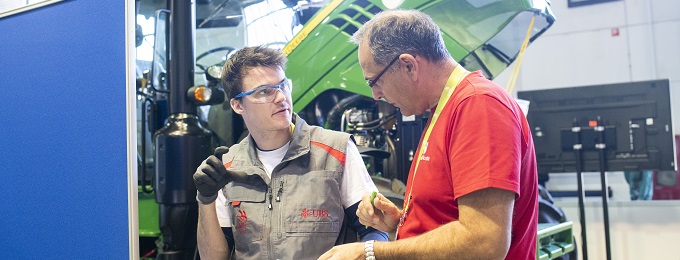The European Commission wants to prevent a lost generation due to the corona-caused crisis and proposes a skills and youth package tailored to the challenge.
On 01 July, the European Commission (EC) adopted the new European Skills Agenda and a Youth Employment Package. While both topics were already foreseen to be addressed in the original priorities of the von der Leyen Commission, they were adapted in order to better help youth and adults through the COVID-19 recession. The new Skills Agenda includes a Communication on how Europe can live up to the challenge of creating the skills for the future. In this context, the EC adopted also a Proposal for a Council Recommendation on vocational education and training (VET), pursuing the goal of sustainable competitiveness, social fairness and resilience. The Youth Employment Package is laid out in a Communication on Youth Employment Support, which makes the case for a Proposal for a Council Recommendation that aims to reinforce the Youth Guarantee originally established in 2013. The new European Skills Agenda is closely linked to the Youth Guarantee, while at the same time also covering adult learning. Both together aim at addressing structural challenges, especially Europe’s skills gap and demographic ageing.
When presenting the new Skills Agenda, Commissioner Schmit (Jobs and Social Rights) mentioned that due to the green and digital transitions, business models will change, leading to a need for re- and upskilling. The new European Skills Agenda foresees that the latter can also be supported through micro-credentials that recognise the results of short courses, especially in the digital field. EC Vice President Margaritis Schinas (Promoting our European Way of Life) sees important synergies with the EC’s industrial strategy. He mentioned that industrial ecosystems need a skills element. EC Executive Vice President Dombrovskis (An Economy that Works for People) added that the measures in the area of VET will also provide grants to start ups and offer hiring bonuses for apprentices in SMEs. A new Europass platform was launched on 01 July, as the first implemented flagship action of the updated Skills Agenda. It offers guidance in CV writing and suggests tailored job and learning opportunities. The new European Skills Agenda consists of 11 additional flagship actions, which include the Proposal for a Council Recommendation on VET, a focus on skills to support the green and digital transitions, and a European approach to micro-credentials, among others.
The Council Recommendation on VET will contribute to the European Skills Agenda in making Member States’ VET systems more modern and agile, adding more ‘on the job training’, and including skills that are particularly relevant for the green and digital transitions. To that end, VET policy on EU and national level has to be renewed. The relaunch of the European Alliance for Apprenticeships (EAfA) will deliver national commitments made by governments of participating Member States, EFTA and EU Candidate Countries as well as by nongovernmental actors, such as companies. Better permeability between VET and university education (and vice versa) is envisioned. The proposal for the Council Recommendation on VET asks Member States to make best use of EU funds and instruments to support reforms and investment in VET, including from Next Generation EU funding, European Social Fund Plus (ESF+), the European Regional Development Fund, InvestEU, Erasmus+, and the Just Transition Mechanism. The EC supports the goal of gradually establishing 50 Centres of Vocational Excellence, mainly through Erasmus+, which will form world-class reference points for VET.
The EC proposes to integrate the European Quality Assurance Reference Framework for Vocational Education and Training (EQAVET) into the Council Recommendation on VET, as well as principles of the European Credit System for Vocational Education and Training (ECVET). The proposal for the Council Recommendation includes the following objectives, which will be monitored: The share of employed graduates should be at least 82%, 60% of recent graduates from VET should benefit from exposure to work-based learning during their VET, and 8% of learners in VET should benefit from a learning mobility.
Dombrovskis emphasized that youth unemployment in the EU was already at 15% before the current crisis, more than double the 7% overall unemployment rate. Therefore, the new youth unemployment support the EC proposes would offer targeted help to Member States’ youth during the current crisis. The proposal for the renewed Youth Guarantee foresees to raise the eligible age for beneficiaries to 29 and to offer everyone who signs up to it a quality offer of either employment, continued education, an apprenticeship or a traineeship within a period of four months of becoming unemployed or leaving education. Schmit explained that the new approach is more individualized, and includes especially migrants, individuals with a disability and NEETs (youth not in education, employment or training). The ESF+ will fund the measures. Additional funds for youth employment measures will be provided via the Recovery and Resilience Facility and the REACT-EU initiative under Next Generation EU.
The negotiations on the two proposed Council Recommendations will now take place under the German Presidency of the Council of the EU. The EC also plans to adopt a proposal regarding the European Education Area and an updated Digital Education Action Plan towards the end of September.
(Picture copyright: Michael Zanghellini)

